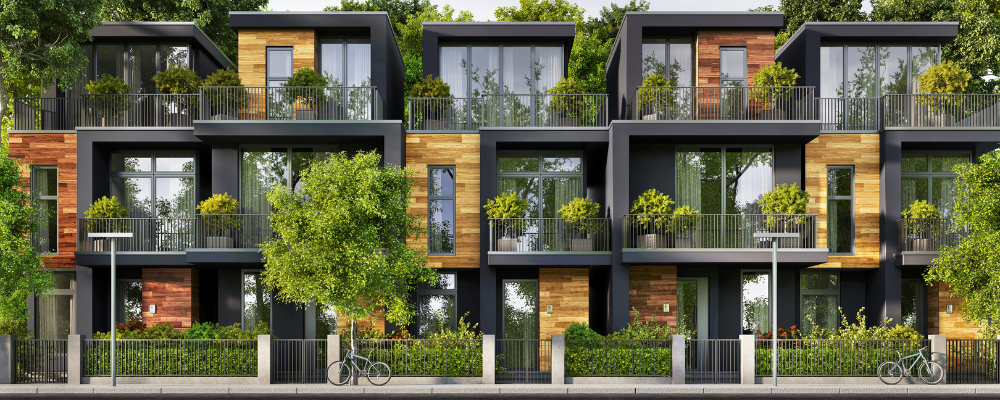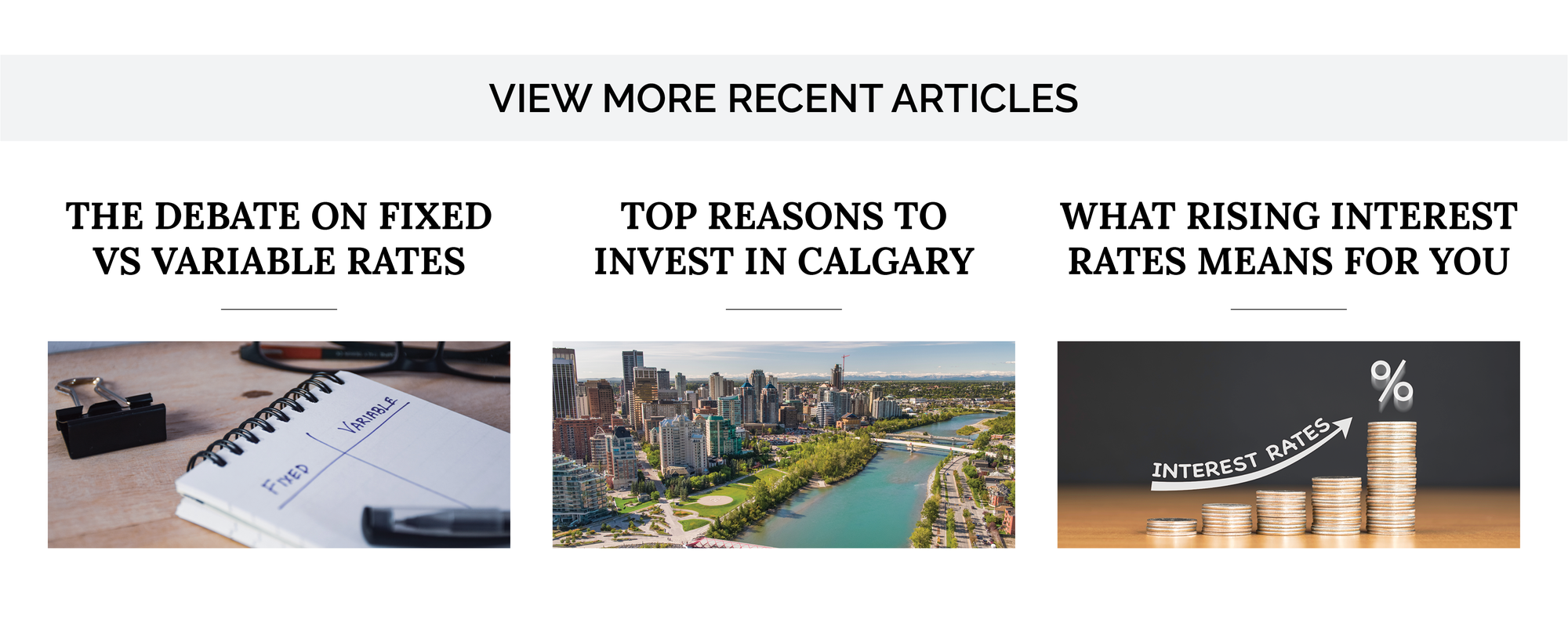
WHY IS BLANKET REZONING ON THE TABLE?
Due to the housing crisis, Calgary City Council is calling for more action to be taken to address the issues facing our residents. One of these actions is a bylaw that will update all residential zones to R-CG, R-G, or H-GO to allow for higher density housing city-wide. This is meant to reduce red tape and speed up the development of more housing, primarily throughout the inner city and existing communities. The majority of the city of Calgary is currently set up under so called "exclusionary zoning", meaning most areas of the city are zoned to allow for only single family homes, excluding other types of development. A city-wide base rezoning will allow the building of single-detached, semi-detached, and row houses ANYWHERE in the city.
Check out this interactive zoning map to see how your area would be affected.
HOW DO THESE ZONES DIFFER?
• R-CG = Residential – Grade-Oriented Infill District
• R-G = Residential – Low Density Mixed Housing District
• H-GO = Housing - Grade Oriented
R-CG and R-G are two modern districts in the Land Use Bylaw that both allow for a range of low-density homes, including single-detached, semi-detached and rowhouses. The primary difference between them is that the R-CG district is used in the established communities and contains contextual rules (the “C” in R-CG) to ensure infill buildings fit into the context of the existing homes on the street. Since R-G is used in new, developing communities that are designed by the developer, context rules are not needed.
Rezoning to H-GO will be proposed for parcels that have been identified in the three approved Local Area Plans as suitable for H-GO (as per the criteria in the Land Use Bylaw). The three approved Local Area Plans where this approach has been actioned are:
North Hill Communities
Westbrook Communities
Heritage Communities
North Hill Communities
Westbrook Communities
Heritage Communities
[Source]
H-GO zoning allows for a variety of housing forms, but maintains direct ground level access for all homes. IT also allows the option of higher intensity redevelopment than that of R-CG, and is typically appropriate in certain locations within a community, typically along main streets or streets that connect different parts of the community.
Read more in our blog: R-C2 vs R-CG vs H-GO: What's The Difference?

WHO IS IN FAVOUR OF THE PROPOSED BYLAW?
There are a number of people and groups who strongly favour the introduction of higher-density zoning across the city, most of whom believe this to be the quickest and easiest way to encourage development of more housing.
These groups include:
• CITY COUNCIL (FOR THE MOST PART)
• INNER CITY BUILDERS AND DEVELOPERS
• RENTERS STRUGGLING TO FIND HOUSING
• THOSE WHO FAVOUR DENSITY TO ENDLESS URBAN SPRAWL
WHO OPPOSES THE PROPOSED BYLAW?
Although there are many in favour of densification, there are also a large number of people and groups who oppose it, or wish to see certain areas excluded. These include:
• NOT IN MY BACKYARD (NIMBYs). • SINGLE FAMILY DWELLERS WHO LIKE LOW DENSITY
• THOSE GENERALLY OPPOSED TO DEVELOPMENT
• THE CALGARY REAL ESTATE BOARD (CREB)
Many city residents like the concept of density in principle, but just not in their neighborhood. Many other city residents who live in primarily single family neighborhoods have grown accustomed to lower density living and don't like the idea of more people and vehicles in their areas. And laslty, some city residents don't want to see older homes torn down in favour of new construction. They want to see character homes preserved for historic reasons. They believe that blanket rezoning will speed up the pace at which older homes are torn down to make way for newer higher density structures.
On February 13, 2024, CREB (Calgary Real Estate Board) released a statement opposing these proposed zoning changes, expressing concern regarding the city's infrastructure, the city's readiness to handle the implications, and the proposal's effectiveness. Hong Wang, Chair of CREB’s Government Relations Standing Committee (GRSC), said,
Blanket rezoning is not the right solution to address Calgary’s housing challenges. It poses a significant risk to communities, driving up the level of congestion in neighbourhoods and putting added strain on infrastructure and service quality. We oppose this approach and advocate for a more community-focused strategy to respond to Calgary's housing shortage, shifting the focus away from a generalized housing crisis to the housing supply crisis that blanket zoning will make worse.”Wang believes "by prioritizing sustainable growth practices and engaging in robust community consultation, we can strike a balance between housing need and neighbourhood preservation." Ann-Marie Lurie, CREB Chief Economist added,
Rezoning in the way it is being proposed will not necessarily add the amount of supply needed in the price ranges that require supply.”Wang urged City Council to carefully evaluate the implications of blanket rezoning and consider a more nuanced approach to address Calgary's housing challenges. Read the full statement here.
OUR THOUGHTS ON WHAT THIS MEANS
Just because the entire city might be rezoned to allow for townhome development does NOT mean that every area is likely to see massive redevelopment and high-density construction. Communities built in the last 20-30 years (think Chaparral, McKenzie Towne, etc) are unlikely to see any significant effects from blanket rezoning, as lot sizes and community characteristics are not ideal for immediate redevelopment.
BLANKET REZONING WILL PRIMARILY AFFECT EXISTING INNER CITY AREAS
BLANKET REZONING WILL PRIMARILY AFFECT EXISTING INNER CITY AREAS
The reality is that new communities have always been developed based on demand for different types of housing. City-wide rezoning isn’t likely to change all that much about new communities and how they look. There will still be areas in new communities where primarily single family homes are developed.
Older, inner city communities however, have large lot sizes, aging homes, and offer a ton of potential for redevelopment at a higher density. Think today's infill communities like Altadore, Killarney, and West Hillhurst, as well as 1950's single family communities like Haysboro, Glendale, Wildwood, etc.
BLANKET REZONING WILL PRIMARILY AFFECT INNER CITY AREAS OFFERING A LOWER COST FOR LAND
Existing estate communities with a very high cost of land (like Mount Royal, Britannia etc) are less likely to be affected as development of high density housing doesn’t make the most sense for a developer in these areas. These areas will most likely continue to see new development of higher end single family homes, with a lower risk of multi-family development. After all, why would a developer spend 2-4 times as much for the same size parcel of land as they could in another area?
BLANKET REZONING WILL PRIMARILY AFFECT INNER CITY AREAS OFFERING A LOWER COST FOR LAND
Existing estate communities with a very high cost of land (like Mount Royal, Britannia etc) are less likely to be affected as development of high density housing doesn’t make the most sense for a developer in these areas. These areas will most likely continue to see new development of higher end single family homes, with a lower risk of multi-family development. After all, why would a developer spend 2-4 times as much for the same size parcel of land as they could in another area?
WHAT DO YOU THINK?
If you want to learn more, you can attend one of the City's upcoming in-person info sessions:
March 11, 5:00 to 8:00 PM, Radisson Hotel & Conference Centre Calgary Airport (6620 36th Street NE)
March 13, 5:00 to 8:00 PM, Carriage House Hotel & Conference Centre (9030 Macleod Trail S)
March 16, 11:00 AM to 2:00 PM, Ranchlands Community Association (7713 Ranchview Drive NW)
March 13, 5:00 to 8:00 PM, Carriage House Hotel & Conference Centre (9030 Macleod Trail S)
March 16, 11:00 AM to 2:00 PM, Ranchlands Community Association (7713 Ranchview Drive NW)
City Council will accept feedback through March 17th, so let your voice be heard. City Council is now accepting input on the proposed rezoning via their website. The final public hearing is scheduled for April 22nd, where the public is welcome to attend. Learn more about how to participate in public hearings here.




